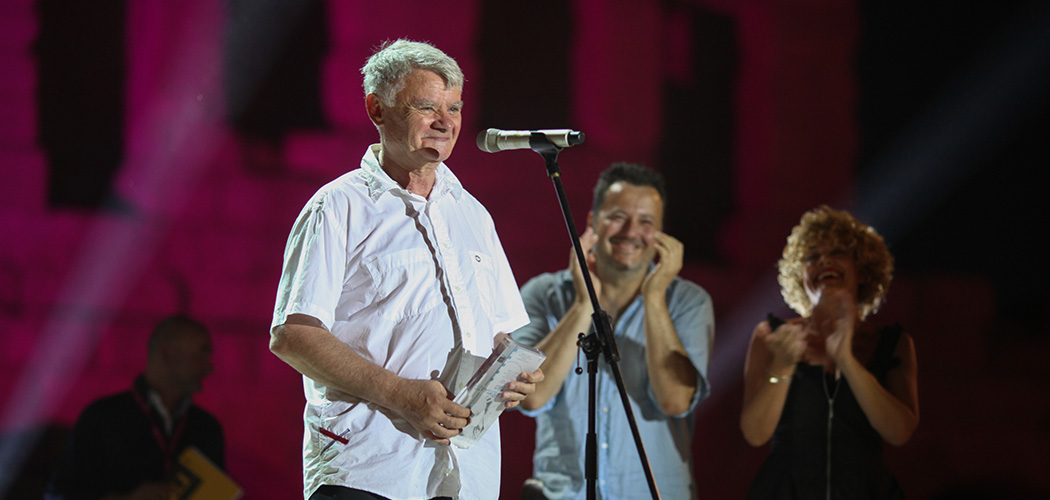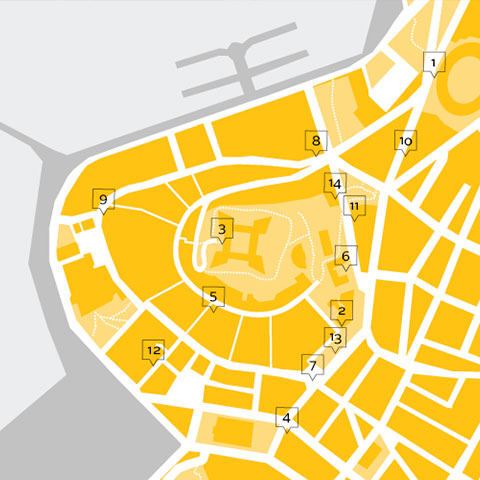
There are few as powerful successors of Šovagović…
Every great actor is big and special in their own way. However, for many years to come it will be difficult for anyone to match the celluloid strikingness of Fabijan Šovagović (who gave his name to a best actor award) as convincingly as Ivo Gregurević. In more than a hundred roles he played on film and television during the last four decades, the actor born in Donja Mahala in the vicinity of Orašje in 1952 had the opportunity to play all kinds of (mostly domestic, local) personalities. Regardless of suits and uniforms (which from film to film, from series to series changed colour, model, insignia, and shoulder-straps), the haircut, moustache and sideburns (cut by stylists) or the place in the screenplay – central or marginal / supporting (assigned to him by screenwriters and directors), Gregurević remained an unusually convincing man “from our streets” for the most part , just like the great Šovagović.
He managed with equal impressiveness the grotesquely tragic, comic or simply dramatic situations, as well as aberrations imposed on his characters by the environment, historical and existential circumstances, and the reality he belongs to. As Ivo Štivičić once said, “His creative probe went deep underground, pulling out of it and creating on it deep and distressing veracities”.
Because of this truthfulness and credibility, Gregurević attracted directors of all generations. He was launched in 1977 by Bogdan Žižić with the role of a young foreign worker in the film Don’t Lean Out the Window, after which Antun Vrdoljak grabbed him firmly for the role of the returned emigrant groom in Snowstorm (1978), only to display his full comic potential in Cyclops and successfully exploit it until the film/series Long Dark Night (2004). With Papić, Radić, Tadić or Schmidt, with whom he most commonly collaborates, he had a chance to exchange serious and grotesque masks, to “shed” his skin, temper and moral habitus, depending on the real-life story that inspired the directors, just like in several Ogresta’s works, starting from the TV film Duet for One Night (1984) to the omnibus Here (2003), and the first feature films by Živorad Tomić and Snježana Tribuson. Gregurić’s authenticity and huge acting potential have been recognized by younger filmmakers as well, the generation of directors that appeared in the early 1990s – from Brešan, Nola, Hitrec and Hribar to Matanić, Jurić and Dević. This is the reason why he is not only remembered as a shrewd street sweeper from Dalmatian Zagora in the series Velo misto (1981) or the dissolute Pannonian Robin Hood called Charuga in Rajko Grlić’s film of the same name (1991).
If we mention Gregurević’s acting face (seemingly asymmetrical, with penetrating eyes and a dynamic lip line), his figure (seemingly ordinary, everyday) and his rich mastery, it does not matter which route his character took (or deviated from). Because both foreign worker’s wistful ingenuousness and rakishness, sarcastic (very often comic) arrogance encouraged by political power, arms and money, as well as frowning looks and crudeness as a consequence of living conditions and bitterness and dullness of an ordinary family man brought about by weariness and old age, suit him equally well. There are few as powerful successors of Šovagović…


